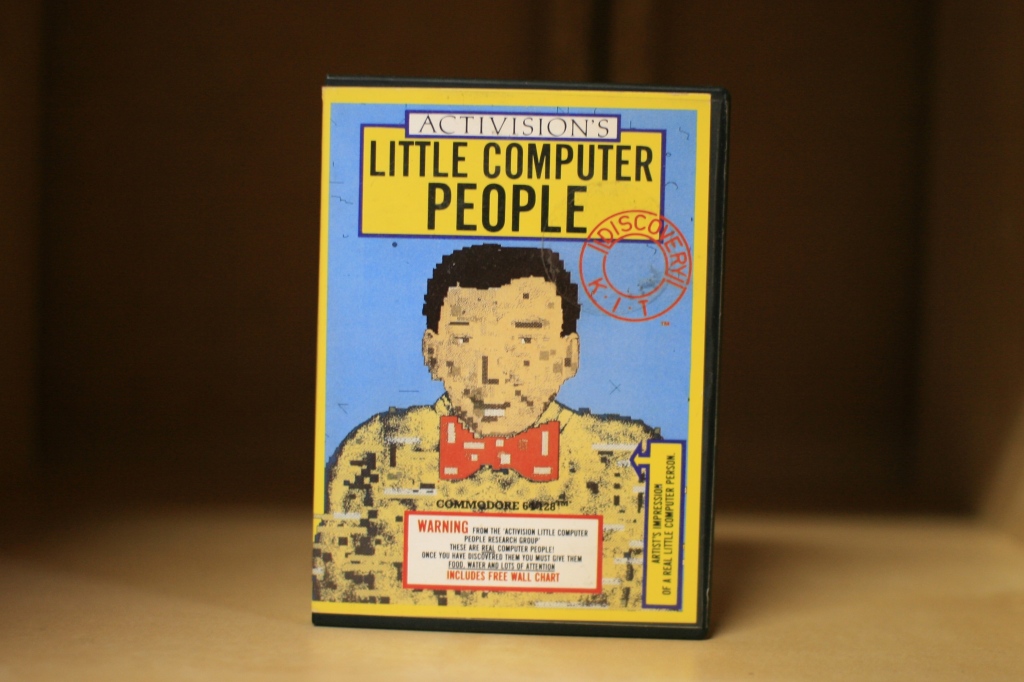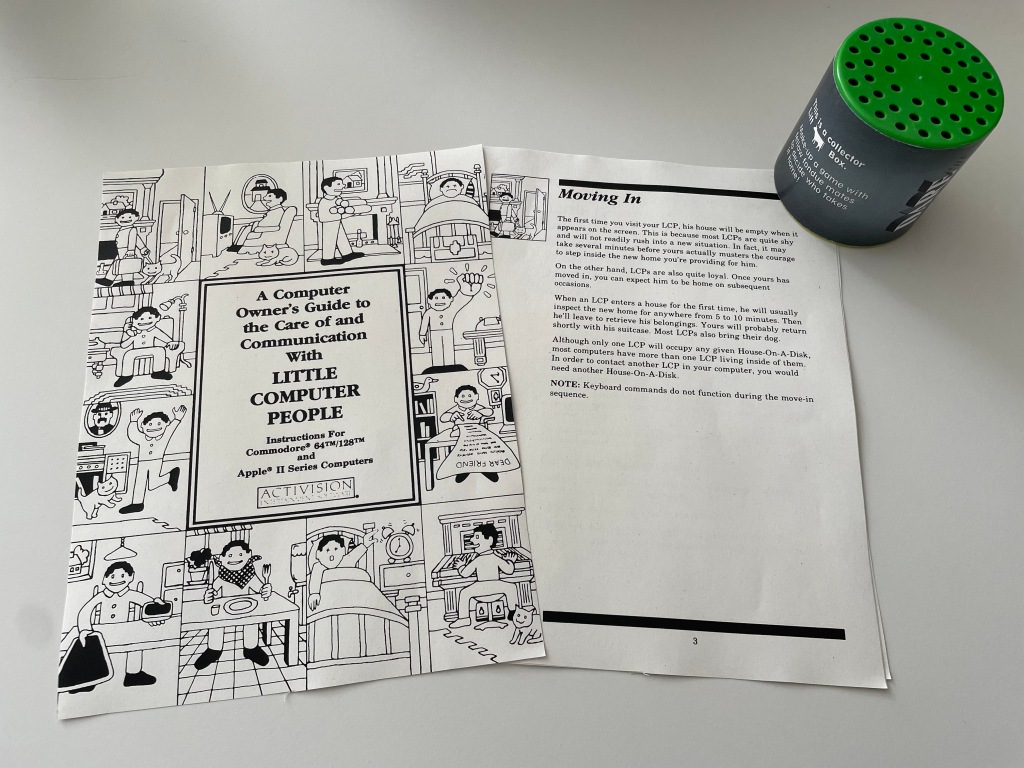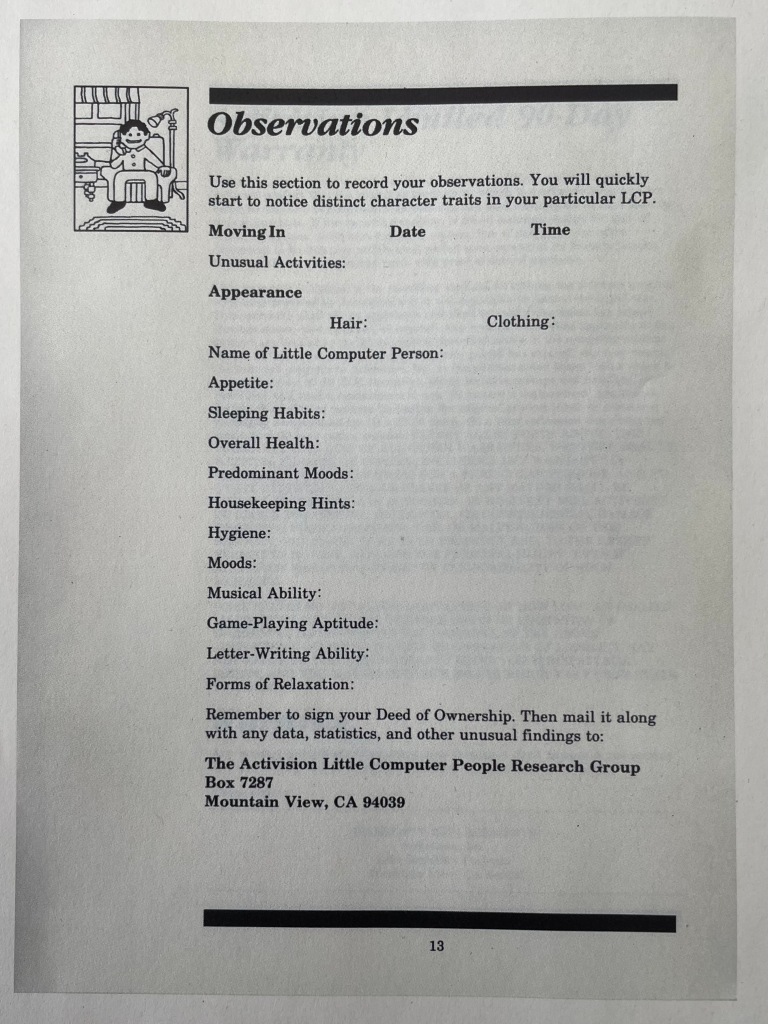
Little Computer People, also called House-on-a-Disk, was a social simulation game published in the mid-1980s by Activision for various computers (C64, ZX Spectrum, Amstrad CPC, Atari ST, Apple II, Amiga). It basically led users to believe that they could observe small characters living in our computers, represented as a ‘House-on-a Disk’ on your display.
The game mechanic was quite simple, as described on retrogamer:
after booting up your disk for the first time you are presented with an empty three story house on screen. After a few minutes your Little Computer Person (LCP) appears through the front door and takes several minutes to check out his new dwelling before getting his suitcase and moving in proper.
Your LCP generally does his own thing about the house; he watches TV, listens to his record collection, reads the newspaper, operates his computer and will even exercise when his mood takes him. Food and water are supplied through keyboard controls, as are a series of ‘mood boosters’ such as petting your LCP, giving books and records as gifts and letting him receive a phone call. Little Computer Person will also play games with you including poker and an anagram game, and from time to time will type out a letter to you expressing his feelings and desires. You can also attempt to communicate with the LCP by typing in requests through the keyboard.

Obviously, the game has no specific aim beyond than observing these charming little computer people moving around; what became more common later with games such as The Sims.
Why do I blog this? LCP was certainly one of these applications that played with this idea that machines were filled with (small) creatures having a life of their own... suggesting the existence of human-shaped machinic lifeforms. The most striking feature for that matter was the 'observation sheet' in the manual (yes the game had a paper manual), which encouraged users to adopt a quasi-naturalist perspective by writing down few words about what one could notice, in terms of health, appearance, or appetite.
